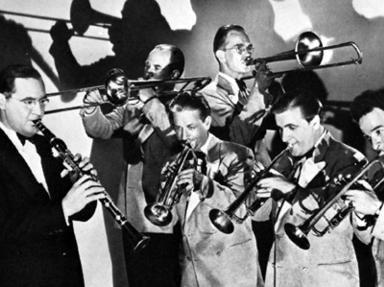Quiz Answer Key and Fun Facts
1. "In the Mood" was the best-selling single of Glenn Miller and His Orchestra but what was his band's theme song, especially on their radio programme?
2. Cab Calloway fronted several orchestras over the years but his biggest hit remained his "theme" throughout them. Who was it about?
3. Named after a New York City subway route, whose orchestra used "Take the A Train" as their theme song?
4. For which big band/orchestra was Herman Hupfeld's 1931 composition "As Time Goes By" the theme song?
5. The theme song used by the Count Basie Orchestra sounds like it should be played at the end of the night just before the band packs up its instruments. What's its name?
6. Benny Goodman collaborated with which vibraphonist in his quartet to write "Flyin' Home" which his writing partner later adopted as his own orchestra's theme song?
7. Cole Porter wrote a song about a Latin dance for his musical "Jubilee" in 1935. Both were unsuccessful. Which clarinetist-band leader recorded this song, which eventually became his theme song, in 1938?
8. The Lawrence Welk Orchestra concluded performances (and television shows) with George Gates' "Adios, Au Revoir, Auf Wiedersehen." What was their opening theme?
9. Reedman Woody Herman (1913-1987) led several jazz bands, all of them called the Herd. What was his theme song?
10. "I'm Getting Sentimental Over You" was written (music by George Bassman and lyrics by Ned Washington) and recorded in 1934. Which big band used it as a theme song in person and on the radio?
Source: Author
FatherSteve
This quiz was reviewed by FunTrivia editor
agony before going online.
Any errors found in FunTrivia content are routinely corrected through our feedback system.
